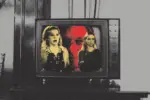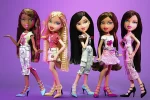For many reality television fans, summertime means one thing: a brand-new season of “Big Brother.” The decades-old show premiered its 23rd season on July 7. The program has undergone many changes throughout its run; it has morphed from the “Old School” players of the early seasons to the “Golden Era” soon after, and to what is now considered the “Modern Era.” After a highly criticized past few years, some are referring to Season 23 as a new era of the show.
A History of Scandal
“Big Brother” has always had a knack for making headlines — for all the wrong reasons. Season 15, one of the more infamous years, was full of microaggressions, racially charged insults and homophobia. “Big Brother” finally aired a segment broadcasting the houseguests’ prejudices, including clips of Aaryn Gries and GinaMarie Zimmerman joking about their “queer” and “dark” housemates. However, live-feed viewers were the only ones really experiencing the extent of the problem.
In Season 21, Jack Matthews was confronted in his exit interview with host Julie Chen for offensive and violent remarks made toward his Black housemate Kemi Fakunle. Matthews can be seen calling Fakunle “disgusting,” a “maggot” and threatening to “stomp a mudhole through her chest.” The last statement references a phrase used by a past houseguest, but the sentiment is no less shocking.
Just last year, during Season 22, several houseguests were caught mocking Season 14 winner Ian Terry, who is on the autism spectrum. Houseguests Danielle Briones, Nicole Franzel and Memphis Garrett laughed about Terry’s constant movements, and Garrett joked that he had nightmares about Terry standing over his bed at night.
With 80 cameras rolling throughout the house 24/7, they are likely to catch some unsavory moments. The issue arises when CBS refuses to acknowledge the issue or air the realities of the houseguests. Some might try to write these incidents off as anomalies, but the show’s problems are much more systemic. As of 2019, only 30% of “Big Brother” contestants had been people of color. There has never been a Black winner, and there has only been one transgender player in the show’s entire run.
In light of Season 21’s scandals, CBS and “Big Brother” producers released a statement saying, “We share some of the viewers’ concerns about inappropriate behavior and offensive comments, and producers have addressed specific incidents with the houseguests involved. However, there is absolutely no truth that the casting of the show is racially motivated, that the houseguests’ behavior is predetermined or that the outcome is controlled in any way.”
What Makes “Big Brother” 23 Different?
There’s a reason people are referring to Season 23 as a new era of “Big Brother.” In November 2020, CBS announced that all unscripted reality shows moving forward would cast at least 50% people of color. Indeed, this year’s season includes the most diverse cast yet. There are eight players of color and four LGBTQ+ players, including a gay man, two bisexual women and a pansexual man.
Season 22’s “all-star” cast was highly criticized for being boring and predictable, as well as for showcasing the tendency of players in recent seasons to form one gigantic alliance and pick off the outsiders one by one. It was less about the gameplay and strategy and more about groupthink and appeasing the majority.
So when fans talk about a new era, they’re hoping for more diverse casting, for the success of players of color and for the show’s format to truly be shaken up. The “Big Brother” motto might be to “expect the unexpected,” but it’s been a long time since fans were truly surprised.
Looking Forward
Season 23’s representation is certainly something to celebrate. However, what the players do once inside the house is another matter entirely. So far, the first Head of Household, Brandon “Frenchie” French, has already caused controversy.
In his first few days, Frenchie promised other players that he did not plan on nominating women or people of color for eviction. He said he didn’t want to repeat the trends of past seasons by nominating “the usual suspects” and instead wanted to target “jock” white men, as they normally progress without being challenged.
On nomination day, Frenchie instead chose a man and woman of color. He broke both of his promises in one fell swoop, and fans were justly outraged. What might have been a progressive mission statement now feels performative and entirely hollow. Furthermore, CBS aired the half of Frenchie’s promise that involved women but neglected to shine light on his vows regarding people of color.
Granted, players like Frenchie don’t make “Big Brother” unwatchable. He might just make a good villain to root against. After all, the point of the show is to focus on average people, flaws and all. Censoring Frenchie’s prejudices and pitfalls would be far worse.
The problem arises when fans have to watch players like Frenchie succeed season after season. It might be fun to root against a villain, but it becomes a lot less fun when the villain wins $500,000 (or, in the case of this season’s special prize, $750,000). CBS’s newfound commitment to diversity can guarantee a more representative cast, but it’s the responsibility of the players and the show’s formula to decide who will succeed when all is said and done.
And despite Frenchie’s nominations, this season’s cast and formula seem to be working well to actually shake things up. The first person evicted, as of July 15, was a white, conventionally attractive “jock.” Someone of his profile being evicted first is virtually unheard of in the show’s history. Though there is still one majority alliance as always (“The Slaughterhouse”), it doesn’t appear to be very stable and will probably last only a few weeks before the inevitable implosion.
Other alliances include the all-Black “The Cookout” and the all-female “King Slayers.” Both are revolutionary, with very few all-Black alliances in the show’s history — the “Black Girl Magic” duo of Season 22 is all that really comes to mind. All-girl alliances are actually infamous in “Big Brother” for never working; the moment male houseguests learn of their existence, they usually try to break the alliance up immediately. But this is a new era, after all.
As a fan, I am tentatively optimistic for the show’s future. Diverse casting is a great start, and holding houseguests accountable for the things they say and do is the next step. I’d like to walk into the house right now and ensure that only the most deserving parties win money, but I can’t — and shouldn’t. “Big Brother” was intended as an isolated social experiment. Trying to guide or manipulate the season’s trajectory goes against the very core of its purpose.
What fans can do is support those who deserve it, keep pushing “Big Brother” to always do better and, as always, expect the unexpected.

















